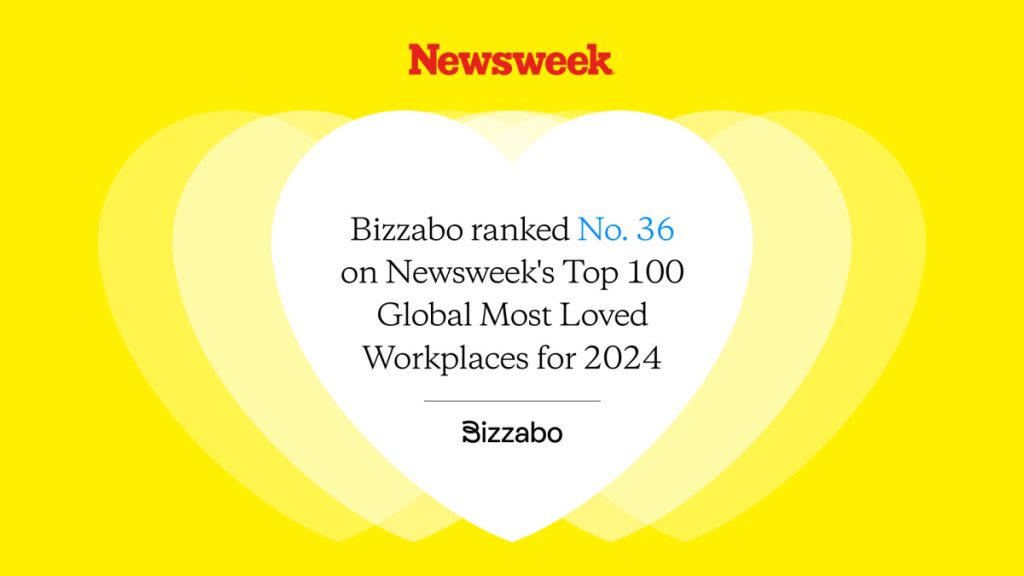20+ Questions To Ask When Choosing the Best Event Management Software


Are you on the hunt for the best event management software? Event software isn’t created equally. These 20+ questions will help you choose the best software partner for your organization’s unique event needs.
The events industry has seen a considerable influx of event software over the past few years, and it’s no surprise. The pandemic accelerated the need for solutions to help event organizers plan, execute, and measure the success of virtual, in-person, and hybrid events.
But which event management platform is the best for you and your organization? The decision is becoming more challenging to make as more software pops up every day. According to Grandview Research, the industry is estimated to grow to $14.48B in 2028 — up from $6.36B in 2021).
It’s no surprise, then, that Capterra has a whopping 841 event management solutions, and G2 features 220. (These numbers are current as of August 2023.)
To help you vet a software partner and make the right decision, we’ve curated more than 20 questions to ask event management software providers during your next demo.
The Growth of the Event Management Software Industry
First, let’s look at the context that has shaped the event management software market as we know it today. Here are some telling statistics about event tech:
- 68.9% of organizers say event software has a major impact on the success of their events (Bizzabo, 2023)
- 67.4% of organizers say they have changed or plan to change their event management software vendor within the next year (Bizzabo, 2023)
- 72.5% of organizers say their event management software played a major role in the success of their most recent conference (Bizzabo, 2023)
- 62.9% of attendees say they expect in-person conferences to use modern technology (e.g. wearable event technology) (Bizzabo, 2023)
- 67.5% of attendees say it’s vital to have a mobile app so they can ask questions and participate in polls during event sessions (Bizzabo, 2023)
- 56.1% of attendees say the in-person B2B conference mobile app can make or break their event experience (Bizzabo, 2023)
- 52.7% of attendees say ease of check-in at an in-person B2B conference can make or break their event experience (Bizzabo, 2023)
- 51% of event decision makers are satisfied with their virtual events platform, but 94% encountered issues with their platform’s setup (BlueJeans and Forrester, 2021)
Want more compelling and insightful event statistics? Check out this article.
20+ Questions To Ask When Choosing the Best Event Software
Before you sign on the dotted line, be sure to get answers to these key questions during your demo.
1. What are the weak points in your solution compared to the competition?
Don’t be afraid to start with the tough questions. Asking for a comparison with other event software will help you assess the honesty of their sales process, which reflects the company’s values.
2. Can I monitor event registration and campaign performance in real time?
Given that event registration is a leading metric for event marketing success, you need to be able to assess performance so you adjust your strategy in real time if needed.
3. Can you show me examples of event websites built on your platform without the help of designers or developers? Can I use my brand colors, logo, and embed images and videos without needing a specialist?
Creating a stellar event website that’s true to your brand is essential. By looking through some websites built on the platform, you’ll be able to envision what you could design on your own without incurring extra costs.
4. Is the website’s design optimized and responsive across all devices?
In Q4 2021, 54.4% of global website traffic came from mobile devices. Attendees, sponsors, and partners should be able to access your event website and have an intuitive experience across desktops, tablets, and mobile devices, regardless of whether they’re using Apple or Android.
5. What are private label options? Can I use a custom URL and brand the software to meet my event’s needs? What platform features can be implemented into our existing web experience?
Every touchpoint should deliver a consistent, branded, on-theme experience, so you’ll want the option to add branded event elements to your website and other channels. You’ll also want the opportunity to use a branded URL that includes your event and company name — not the tech partner’s name.
6. How easy is it to set and change prices (e.g., early-bird or VIP tickets)? How many payment processors/types does your registration platform support?
You can avoid time-consuming work and frustration by understanding how complex or limited the event platform’s registration and ticketing capabilities may be and whether a platform can support your ticketing plan. Be sure to ask the vendor to walk you through an in-person conference registration setup to see what it looks like from start to finish.
7. Can I provide customized registration experiences for different types of registrants? What content access controls do you offer?
Customized registration journeys deliver a more personalized and meaningful experience to potential registrants, which can increase your registration conversion rates. This feature is also crucial for controlling who can see and register for what and what each participant will ultimately be able to access.
8. Can I manage private events with your software?
If some of your events aren’t open to the public — such as investor meetings or internal training — you’ll need event software to control the visibility of and access to your event website.
9. Can I create customized, branded emails without external help?
Email is a vital part of event marketing, so you’ll want an email builder that is intuitive, versatile, and reflects your brand and the event’s theme. To see what the platform is capable of, ask to see event email marketing examples during your demo.
10. Are there email or contact limitations?
Some event management systems handcuff your ability to market your event correctly. Knowing whether there are limitations helps you avoid unforeseen costs or limitations as your lists and events program grow. You need a future-proof solution that scales alongside your event strategy.
11. Do you offer an event app? Does it cost extra? Does it work across Apple and Android devices?
An event app is a must-have in our mobile-first, hybrid world. Suppose an event software offers an in-house mobile app. In that case, it will make it easier for you to connect all participants regardless of location and collect engagement analytics after the event.
12. Does your platform offer reporting about event app adoption and community engagement?
Having an event app doesn’t mean attendees will download it. Choose event management software that provides contextual data around event app adoption and the channels that drive the most conversions.
13. Does the software integrate with social media for easy sharing? Does the app make networking via social media easier?
Your event platform should allow attendees to amplify your event by letting registrants share their enthusiasm with their friends and colleagues. It should also make it easy for attendees to connect with fellow participants to enhance networking and community-building opportunities.
14. Are there options to promote sponsors and exhibitors? Can I measure attendee engagement with these promotions?
When securing event sponsorships, you must be able to provide measurable value. Attendee engagement metrics will help you demonstrate specific value to sponsors to create more thoughtful and comprehensive sponsorship packages in the future.
15. How does your platform integrate with my existing martech and CRM platforms? Do event integrations cost extra?
With seamless, native integrations, you’ll avoid headaches and evolve your event marketing stack — and you’ll gain cross-platform analytics that paint a fuller picture of how your events program drives ROE and business growth. Don’t underestimate the value of incorporating event data, such as sessions attended, into your tech stack to make future campaigns more personalized and effective.
It’s also essential to dig into the integration process in detail so there won’t be any surprises: Can the vendor reliably get all the data you need, where you need it, in the time frame you need it — without manual intervention?
16. Does the software make reporting easy? What kind of data, analytics, and insights can I expect? Will I need an SQL expert or data analyst to create valuable reports?
Your event platform should provide a clear, easy-to-read dashboard that highlights your event KPIs at the moment. You’ll also need report templates that uncover actionable insights to help you demonstrate ROE and deliver truly impactful event experiences for all participants.
17. What customer support can you provide for my team and our attendees? Do you offer 24/7 support by phone/chat/email?
No matter how well you plan, questions and technical issues always arise. Make sure the event vendor is committed to your success with a professional onboarding process and levels of support from real humans that meet your needs (without hidden costs).
18. What is the largest event your platform has supported? At what scale can your platform operate?
You need to ensure that the event software you choose and the infrastructure supporting it are designed from the ground up to support events at scale. That means negligible performance impact, zero streaming latency, and so on — no matter how many concurrent large events are happening across the platform.
19. When was the platform last down? How long did it last?
Ask the provider to walk you through the root cause analysis and how its team handled the situation. Of course, you’re looking for a solution with a secure, stable infrastructure that’s built for scale with zero downtime. Still, when issues do arise, you need to be confident that the vendor will communicate clearly with customers and resolve problems quickly — without impacting your event. Look for vendors who are transparent and publish service level stats online.
20. Can I speak with customers from my industry who use your platform?
Connecting with similar companies using the event software for the type and format of events you’re planning is a great way to get an unbiased review of the product and learn more about the nuances the sales process may not reveal.
21. Do I have to sign a multi-year contract? What is the cancellation policy, and are there any fees for ending early?
You’d love to find an event platform that meets all your needs indefinitely, but if that doesn’t happen, you should know the impact of changing your mind down the road. Be wary of getting locked into multi-year contracts and predatory auto-renewals that hick up future prices.
22. If I cancel my contract, will I be charged an additional fee to retrieve registrant information and contact details from the platform?
The vendor should be very clear and upfront about who owns and controls your event data. Data privacy and compliance policies can be tricky. Some vendors are only Data Processors, but others are Data Controllers, which can leave you in a lurch.
23. What does the standard package cost? Are there additional fees per registrant or for add-ons? What isn’t included in the base price?
It’s essential to be aware of any add-on or variable fees that could increase your costs down the line. Getting these questions answered early will help avoid unwanted surprises, increase transparency and trust, and confirm whether you’ve budgeted appropriately.
Get Started: Choose the Right Event Software Partner
Whether planning a 50-person event at a local venue, a webinar with 500 folks, or a 5,000-attendee-strong hybrid user conference, your job is to deliver impactful event experiences every time. The right event management software can help you do just that.
The challenge is finding a partner who is as invested in your event’s success as you are. With so much riding on your decision, we hope these questions help. Want to forge an even more straightforward path toward choosing the right event management software? Download our Event Software Buyer’s Guide to get step-by-step guidance on selecting the right event software partner.



